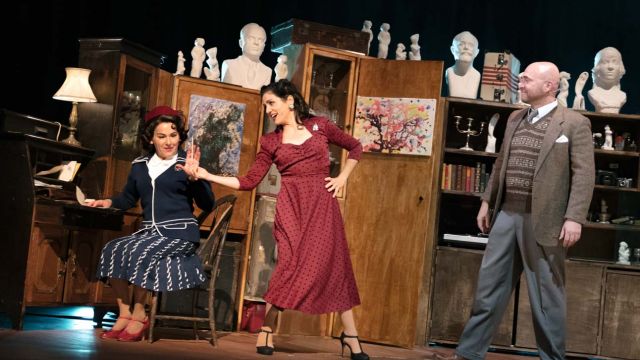Driftwood the Musical
Driftwood is a passion project for Tanya de Jong, the granddaughter of two extraordinary Jewish refugees, Slawa and Karl Duldig. Eva de Jong-Duldig is their daughter. This musical is a true story, so recognisable and familiar that it engages and moves so many people who share these family stories. It is a Jewish refugee story that begins in 1930s Vienna and ends in 1980s Melbourne. It is a story of danger, of staying one jump ahead, and of creativity, invention, improvisation, and resilience – and, by implication, of the huge contribution refugees made to Australia.
Eva Duldig (Sara Reed), on her eighteenth birthday, finally convinces her parents to tell her their story… And her parents reveal boxes and boxes of drawings, sketches, plans, letters, photographs, the patent on her mother’s invention of the folding umbrella, other official documents, entry permits and exit visas. The survival of this record is an enormous achievement in itself: most Holocaust survivors had nothing but memories. Eva becomes our narrator and guide as she discovers their story and her own. Gary Abraham’s skilful, inventive direction makes Eva’s emotions spill over into the telling and her interactions with the past are exciting and delightful.
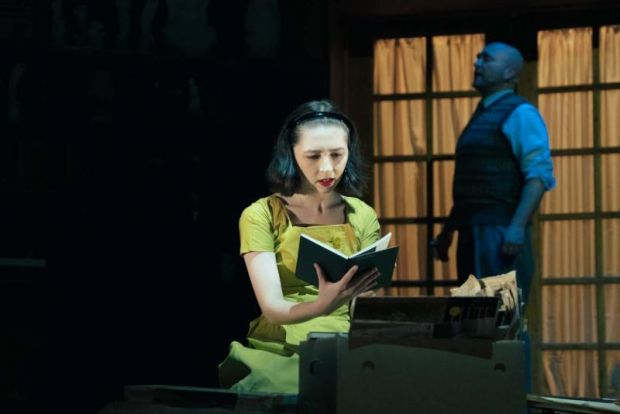
Eva’s mother, Slawa (Tania de Jong), and father, Karl (Anton Berezin), already immigrants from Poland, are art students in Vienna – she a painter, he a sculptor (and star tennis player). Slawa shares an apartment with her talented actress sister, Rella (Michaela Burger) and Karl. Ever practical Slawa invents the first folding umbrella, small enough to fit in one’s bag – and she patents it She calls it the ‘Flirt’. Slawa and Karl marry. Rella gets glowing reviews. Little Eva is born. Life is good. But we know what is coming. The Nazis and the Anschluss, the ever-increasing persecution of Jews and the flight from Austria. Rella escapes to Paris by marrying an altruistic Frenchman, Marcel (Troy Sussman) - and she manages to smuggle out their apartment’s designer furniture and hide it in her basement. Slawa, Karl and baby Eva begin the long and perilous journey that will take them through Switzerland, Paris, Singapore and an internment camp at Tatura, northern Victoria…
The story is told via dramatic scenes, narration, and songs – songs of the period, Jewish traditional songs and prayers, and original songs composed by Anthony Barnhill in a range of musical styles – from deeply personal and intimate to contemporary music theatre. His ‘Beneath the Southern Cross’ in Act II is particularly fine. A trio of piano, violin and cello provides the accompaniment, and the incidental elegant chamber music constantly reminds us of a world that was lost.
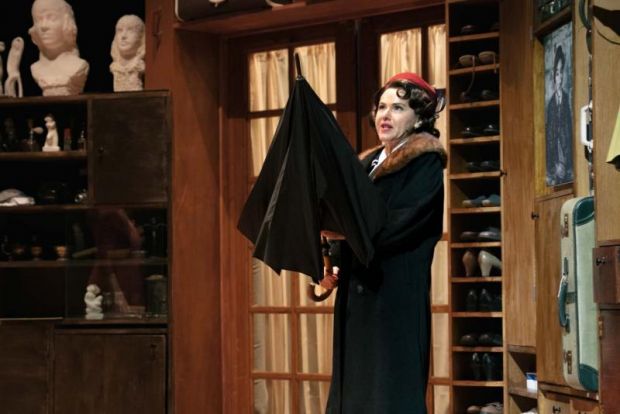
Sometimes, however, we can’t help feeling that there might be too much music and that some songs might be almost redundant. For instance, when the sisters part at Vienna railway station, the beautifully written scene tells us exactly how they feel – and then there’s a song to tell us exactly how they feel.
The show’s ‘book’, which Jane Bodie tells us went through many, many drafts, is an adaptation of the real Eva’s recounting of her parents’ and aunt’s lives and her memoir: Driftwood – Escape and Survival Through Art. Such source material presents huge difficulties for the dramatist since real life has neither dramatic development nor dramatic shape. In this case, the adaptation must also cover a time span of over fifty years. The challenge is to avoid the drama being ‘this happened and then that happened’ – that is, ‘just one damn thing after another’.
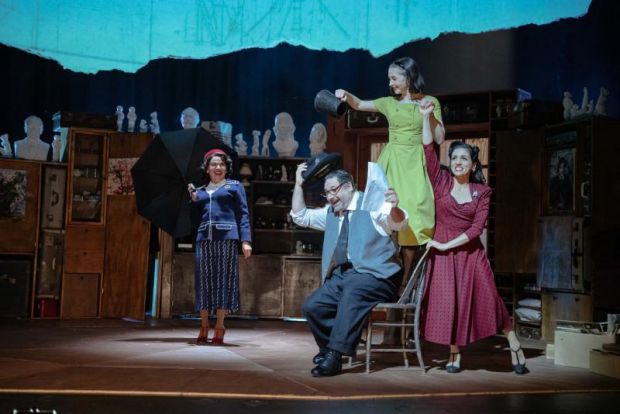
Driftwood doesn’t entirely escape this trap. While there is some real drama in getting out of Vienna, with an edge of the seat daring manoeuvre by Rella, other places on the journey are more or less ticked off, with narrator Eva telling us what came next. The emphasis is on leaving yet again force majeure, and why, rather than dramatizing what might have happened in Switzerland, or Singapore, or Tatura. In Tatura internment camp, did Karl, for instance, kill time by coaching future tennis star Eva while Slawa moped?
For me, Rella is the more interesting character - and Michaela Burger’s lovely performance makes Rella such a vivacious, funny, and attractive character. But Rella is more interesting because she is in more interesting dangerous situations – and, we guess, takes more risky decisions. She marries a man with whom she is not in love, she is a Jew in occupied Paris, she manages to ship out all that furniture and artwork during wartime. Once Slawa and Karl are in Australia, Rella – with whom Slawa had an almost symbiotic relationship in Vienna – refuses to come even when the war is over… That refusal almost becomes the drama of Act II. But the accent is on Slawa (perhaps it had to be) and her struggles to resume her art, and Rella becomes an intriguing en passant B-story.
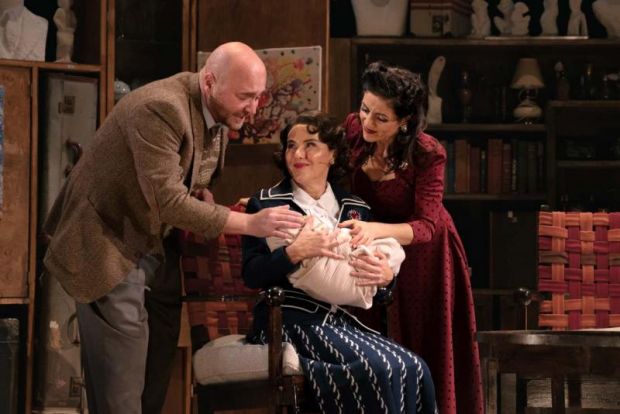
It is a story, however, unique in its details and the packed audience at Chapel off Chapel seemed not to mind these problems (or if they did, they forgave them at once), swept up in the story and giving the show a standing ovation at the end. At the back of all our minds is the contemporary reality of the Ukraine, with its millions of refugees at the mercy of a ruthless invader. Driftwood, meanwhile, exists because of Tanya de Jong’s determination, tenacity, and entrepreneurship. That is the achievement.
Michael Brindley
Photographer: Cameron Grant, Parenthesy
Subscribe to our E-Newsletter, buy our latest print edition or find a Performing Arts book at Book Nook.

